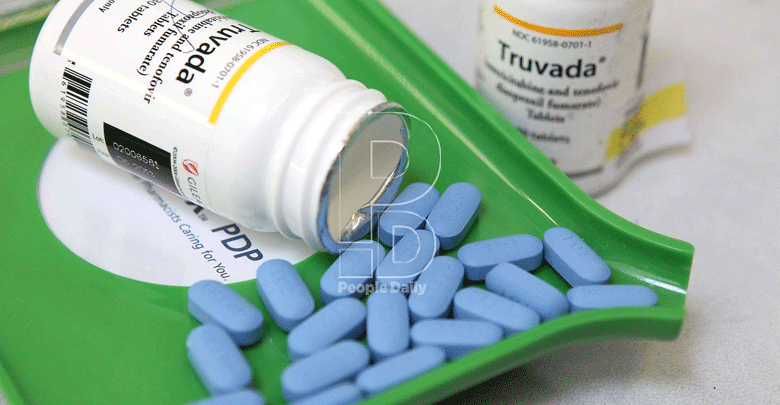Two ARV options suitable for African women and girls, research reveals

Adolescent girls and young women in Africa will and can use HIV-prevention products consistently, according to interim results of a study of two different methods.
Nearly all of the 16 to 21-year-olds who enrolled in the study said a daily antiretroviral (ARV) pill or an ARV vaginal ring that lasts a month worked well for them.
Dapivirine vaginal ring, a new HIV prevention product is currently under regulatory review in several countries.
The study, Reversing the Epidemic in Africa with Choices in HIV prevention (REACH), conducted in South Africa, Uganda and Zimbabwe by the Microbicide Trials Network, found 97 per cent of participants used the products some or all of the time.
While presenting the findings at the 11th International Aids Society Conference on HIV Science last month, researchers said both approaches received high marks from the study participants.
During the six months, of the 247 participants asked to use the dapivirine ring, 88 per cent said they liked it.
When they were assigned Truvada as oral pre-exposure prophylaxis (PrEP), 64 per cent said they liked the daily pill-taking regimen.
Professor Kenneth Ngure, REACH study protocol co-chair said adolescent girls and young women at risk of HIV prevention, “will have additional tools that are safe and are able to use effectively to protect themselves from the HIV.”
The research team attributed the positive reaction to support measures and the non-judgmental counselling approach provided as part of the study.
Globally, more than half of all people living with HIV are women, with Sub-Saharan Africa women accounting for more than 60 per cent of adults with HIV.
Rates of infection are, especially high among adolescent girls and young women.
Disproportionately affected
According to Joint United Nations Programme on HIV/AIDS ( UNAIDS), one in four new infections in sub-Saharan Africa in 2020 were in young women aged 15-24, despite making up only 10 per cent of the population.
After trying both products in the Reach study, participants were asked to choose one to use for another six months.
The choice phase of REACH is still ongoing, with approximately 50 participants still in the study.
Adherence to oral PrEP was based on levels of drug in blood samples taken at each monthly visit.
For the ring, researchers looked at the amount of residual drug left in rings participants returned after a month of use.
Each ring contains 25mg of the ARV dapivirine, about 4mg of which is released into the vagina when used continuously for 28 days.
Study participants’ monthly visits all include a meeting with a counsellor, and participants can also choose from a menu of additional forms of support, including daily text messages or weekly check-ins by phone; having a “peer buddy”; and adherence support groups.
Adherence test results are presented in terms of what they may mean for the level of protection they are receiving and are given without judgment.
“We’ve tried to empower these young women by letting them take control of their own health and behaviour and to make their own decisions,” said Prof Ngure, chair of the department of community health at Jomo Kenyatta University of Agriculture and Technology, Kenya.
“If participants don’t want to or cannot use either the ring or oral PrEP, we simply want to understand why, while also seeing what kind of support may help.
And if they change their mind, that’s OK as well, because as their circumstances change, so will their needs and preferences for HIV prevention.”
Gonasagrie (Lulu) Nair, REACH co-chairperson from the Centre for Medical Ethics and Law in the Stellenbosch University faculty of medicine and health sciences, said the results exceeded researchers’ expectations.
“Yet at the same time, it’s not surprising to find that these young women have the capacity and desire to protect themselves against HIV.
They simply need to feel empowered and have the agency to make choices based on what they feel is right for them,” Nair said.
REACH began in February 2019 and is expected to be completed by October 2021, with final results, including outcomes from the choice period, anticipated in early-to-mid 2022.
While the study was originally designed to enroll 300 participants, 100 of whom would be 16- and 17-years old, in March 2020, in the face of the emerging Covid-19 pandemic, MTN and study leadership decided to close the study to further enrollment so that fullest attention could be paid to ensuring the safety of its current participants as well as clinic staff.










